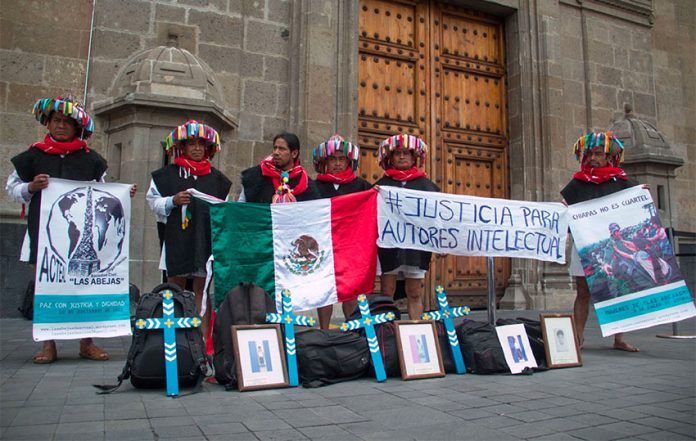The federal government announced Thursday that it is preparing “20 actions of reparation” to compensate for a 1997 massacre in Chiapas that left 45 people dead.
Paramilitaries murdered 45 indigenous Tzotzil Mayan people — including 15 children and four pregnant women — in the village of Acteal on December 22, 1997.
Those slain were members of a Roman Catholic group known as Las Abejas (The Bees) that supported the Zapatista Army of National Liberation. They were praying in their church when they were gunned down by the paramilitaries, who were also Tzotzil Mayans.
The killers were labeled as members of the then governing Institutional Revolutionary Party, and an investigation found that local officials and police had done nothing to stop the massacre and later tampered with the evidence.
Dozens of people were arrested and convicted of the murders but most were released before serving their full prison sentences.
The Interior Ministry (Segob) said in a statement Thursday that the government is preparing “20 actions of reparation” – which it didn’t detail – for the victims of the massacre.
Segob said that its human rights department will sign a “friendly settlement agreement” with 30 victims of the massacre – family members of the deceased – that will include the provision of funds to carry out infrastructure projects in the region.
Acteal is located about 50 kilometers northeast of San Cristóbal de las Casas in the municipality of Chenalhó.
Segob said that the signing of the agreement will be a “starting point for the reconstruction of the social fabric in that area of Chiapas.”
The agreement complies with the will of the victims to move peacefully toward a range of reparation measures that include “recognition by the Mexican state of the events that led to the massacre,” the statement said.
Some of the compensatory infrastructure projects, about which no detail was given, will benefit not just the victims of the massacre but entire communities, Segob said.
“A categorical imperative for the government of Mexico is respect for the freedom and autonomy of indigenous peoples and communities,” the statement said.
“The government of Mexico firmly reiterates that the measures for the reconstruction of the social fabric are a necessary condition to move forward in favor of the pacification and cohesion of our country and, in particular, of all indigenous communities.”
Mexico News Daily
